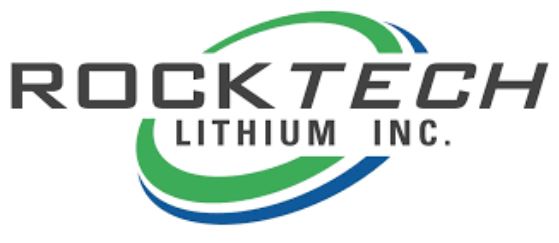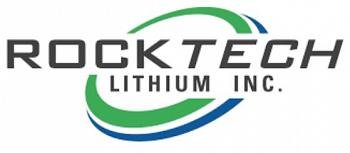Rock Tech Lithium: Where Canadian Mining Meets German Engineering
Rock Tech Lithium (TSX-V: RCK) plans to supply the German automotive industry with lithium from 2023. The company mines the battery metal sustainably in Canada according to Western standards and does so without wasting precious water or other negative environmental impacts. In further steps, the lithium will be refined for processing in battery factories, and the company, owned by German Chairman Dirk Harbecke, will also rely on its own patents. Harbecke explains in an interview why it is a great advantage to map the entire value chain, why the market has not yet recognized the company's potential, and what role prominent advocates play for Rock Tech Lithium.
You have been in the lithium business since 2010 and know the market very well. What has changed over the years?
In 2010, Elon Musk announced his intention to sell 100,000 Tesla Model-S. However, this announcement was not taken seriously by many market participants at the time. The lithium market took off in 2016 with China's commitment to electrification of public transportation and the introduction of the Tesla Model 3. As a result, the price of lithium skyrocketed to as high as $25,000 per ton at its peak. As actual e-car registrations fell short of expectations in 2018 and 2019, prices fell and a shakeout began for lithium project developers. Since 2020, however, the die has finally been cast in the direction of electric mobility in the automotive industry as well. The registrations of around 20% electric cars or hybrids in Germany in the fourth quarter also show that the topic is more topical than ever.
You always talk about the auto industry. Doesn't lithium play a role in other industries, such as the entertainment industry?
In the future, smartphones or laptops will also contain a battery with lithium. But, "The batteries in electric cars are much bigger. We expect that around sixty percent of the demand for lithium will soon come from the automotive industry. That alone shows how big the upheaval is that is currently taking place in the lithium market.
What market forecasts are you relying on when you think about lithium in 2025, and what do those forecasts say?
We rely on figures from two major analyst firms, Roskill and Benchmark Mineral Intelligence, in addition to doing our own research. Even though many analysts, such as those already mentioned, but also Canaccord in Canada or UBS in Europe, are well connected in the market, we also do our own research - especially in terms of supply. We know the market and how long it takes to bring projects into production and the difficulties that can arise along the way. We expect demand for lithium to increase at least twelvefold by the end of the decade. Within just the next four years, lithium demand will increase fivefold. These figures are derived from several independent sources and illustrate how great the potential is around batteries for electromobility.
You have a lithium deposit in the Canadian province of Ontario and plan to bring it into production by 2023. What sets this project apart and what are the advantages over other lithium regions, such as South America?
Rock Tech Lithium's goal is to support the sustainable mobility revolution. We believe that mining and processing lithium is not enough. As our name suggests, we don't get our lithium from salt lakes, as is common in South America, for example, but can extract it directly from the surface of the rock at our property in Canada. The lithium content there is many times higher than in Chile, for example. After we have processed the rock and extracted the lithium, we return the rock to the earth. We then reforest the land and ensure that our impact on nature is the least impactful possible. Rock Tech Lithium takes sustainability at its word and has found many advocates in Canadian authorities and local First Nations in this way. In the next step, we hope that our approach will also convince potential customers and cooperation partners.
The fact that ESG criteria are also adhered to by suppliers is certainly an aspect that is becoming increasingly important. In the end, however, it's the numbers that count most. Can your project also score economically?
Sustainability and economy go hand in hand at Rock Tech Lithium, for example thanks to our short distances. Our project is located about 150 kilometers north of the Great Lakes in Canada and is connected to within five kilometers of the important east-west Highway 11 route. From there, our lithium can be transported to Thunder Bay, a port city on the Great Lakes, within a very short time. Coupled with the high lithium contents, the generally good general conditions in the mining country Canada as well as western standards with regard to environmental protection and sustainability, these are outstanding prerequisites for holistic success.
Rock Tech Lithium not only extracts the raw material from the earth, but also processes it. Why is it important to cover a larger part of the value chain?
The processing of lithium is a crucial unique selling point for Rock Tech Lithium and also our shareholders. In recent years, the European Union and also the Federal Republic of Germany have committed themselves to securing the entire value chain around battery cells. As there are no significant lithium projects within Europe, we must follow China's example and secure deposits abroad. Since Europe attaches great importance to ethical standards, Canada is predestined as a source of lithium. Here, there is great experience around mining as well as a deep understanding of sustainability. When it comes to refining the raw materials, the countries of Europe can score points. In addition, there are EU subsidy opportunities that benefit our company. But the biggest advantage of being a full-range supplier of lithium is our independence: No matter how scarce lithium becomes. We will always be able to deliver.
You have registered patents for your lithium processing methods. What do you do differently than your competitors?
The lithium industry is young. Consequently, there is always something to improve. During the production of lithium, there are always by-products. These have to be stored or otherwise processed. This results in costs. We recently signed an agreement with GP Papenburg. The company takes the by-products off our hands and supports us in storing them. This will benefit us by eliminating costs that are currently included in our calculations. As a further measure, we have greatly reduced our CO2 emissions and the amount of energy required to produce lithium by using a process we have developed ourselves. We have applied for a patent for this process.
The final refining step is to take place in a factory in eastern Germany. What speaks for this region?
We are looking at Brandenburg as well as Saxony-Anhalt. The decisive factor for us is the proximity to battery cell production. Basically, we feel very comfortable in the region because, in addition to well-trained employees, we also receive valuable impetus from the research side there. We already work closely with the Bergakademie in Freiberg, Saxony, which has also supported us in the context of our patent applications. Added to this are subsidies, which are higher in the east of Germany than in the west.
Why does it make sense from an investor's point of view to invest in your company right now?
I think our valuation is currently very attractive. At the beginning of the year, media reports and the entry of very well-known professional market participants gave our stock a tailwind. It is perfectly normal for corrections to follow such phases. However, the decisive factor is the outlook. In my view, the market has not yet realized that Rock Tech Lithium is heading for production. In the coming months, we will be able to announce further steps that will additionally underpin this development. Unlike many other companies in the lithium sector, we are not selling a pretty story, but a tangible project where numerous framework conditions have already been established and many contingencies have been considered down to the last detail. We want to produce lithium in 2023 and are getting closer to this goal day by day.
Can you give examples of details that you have already clarified?
We are in a lively exchange with all stakeholders and thoroughly inform all parties involved. This includes representatives of politics, but also potential cooperation partners with whom we are already in talks. We have already addressed the agreement with GP Papenburg on the use of our by-products. In addition, we have initiated and in some cases already completed many approval processes. In April, we will have the first lithium hydroxide from our pilot plant in our hands as part of a test production and will send corresponding samples to our potential buyers. All these are big steps towards our common goal. The bottom line is that it is not out of the question that Rock Tech Lithium will report first agreements for the supply of lithium for battery production still in 2021.
Your management board team and also the advisory board are peppered with engineers and former decision-makers from the DAX and the European automotive industry. How important is a strong network in the development of a lithium producer?
Every new industry relies on communication. There is no lithium converter outside of China. Rock Tech Lithium will build such a plant in Europe. In order to be able to communicate the underlying technology, as well as the requirements for sites and other framework conditions, to the respective decision makers, we rely on support. We are glad to have found numerous renowned advocates from science and industry to enter into an exchange with them and to carry our common goal into the world. Our network helps us on the one hand to make Rock Tech Lithium better known, but also serves us as a sparring partner. We are not only a producer of raw materials, but also a processor. We want to process the raw materials sustainably mined in Canada in the best possible way. German engineering skills help us to do this.
For some months now, the lithium price has been moving upwards again. Why do you think this is a sustainable trend reversal? How much does lithium need to cost for Rock Tech Lithium to succeed in its plans?
Lithium will continue to rise because supply is tight and demand is surging. As mentioned earlier, demand is very likely to increase five times in the next three to four years. Already by the end of this year, a significant shortage will be felt in the market, which should result in renewed price increases. As our plans are to be in stable production from 2023, Rock Tech Lithium is a beneficiary of the market situation. Currently, a ton of lithium costs between $10,000 and $11,000. Even though our economic plans have not yet been finalized, we expect to be in the black starting at $7,500, all things considered. Thank you very much for talking to us.
Comments
There are 0 comments on this post





